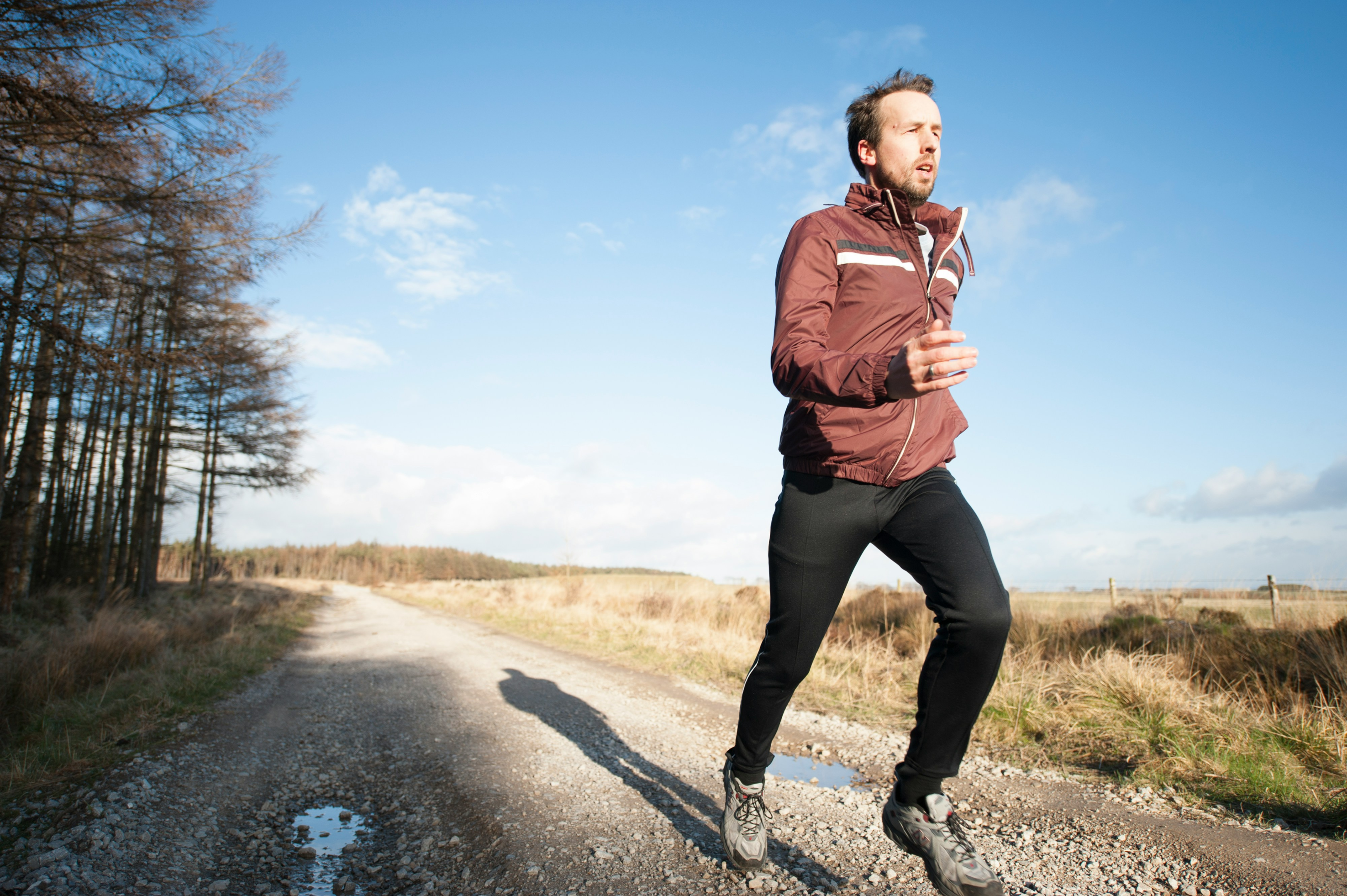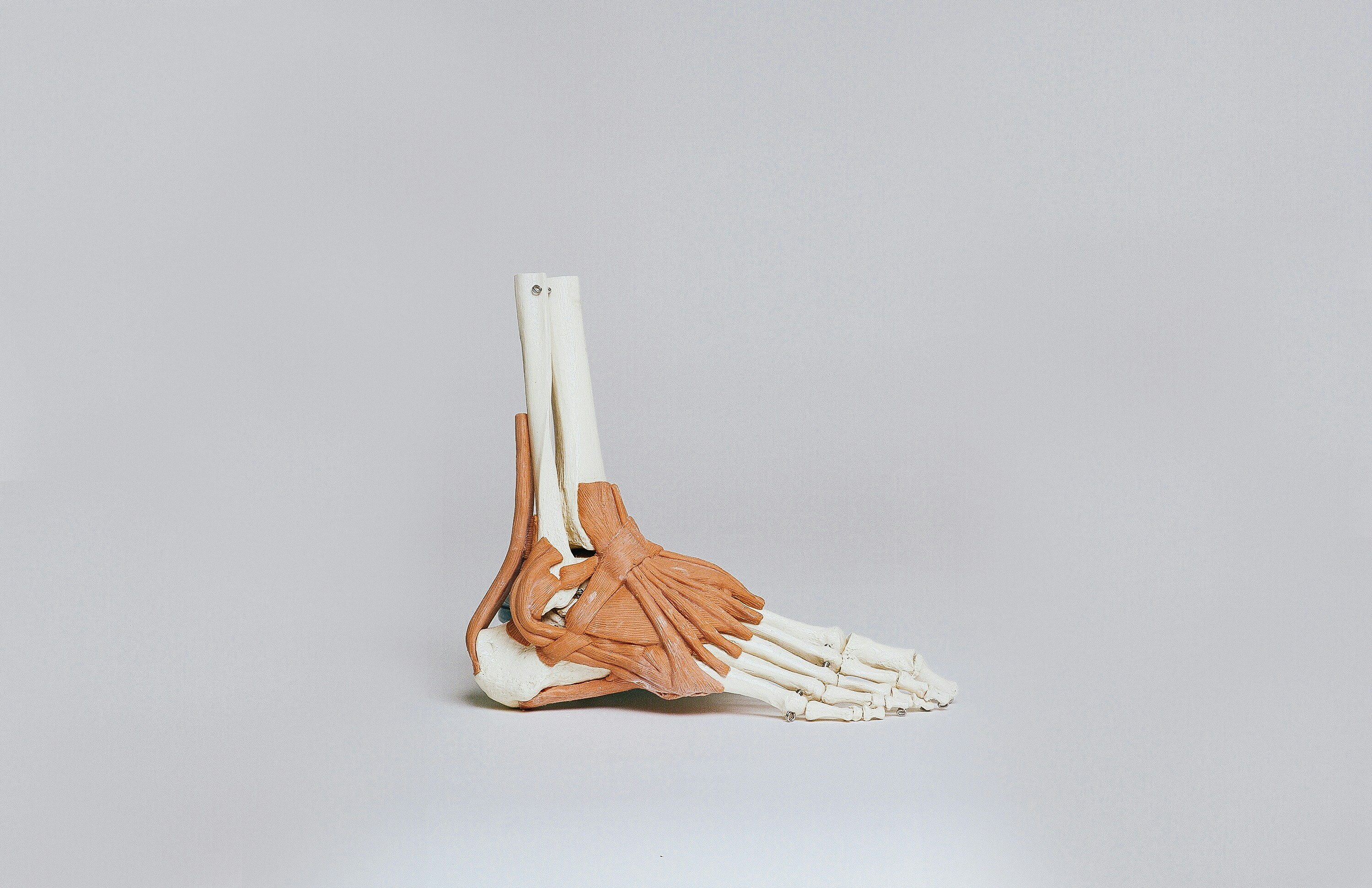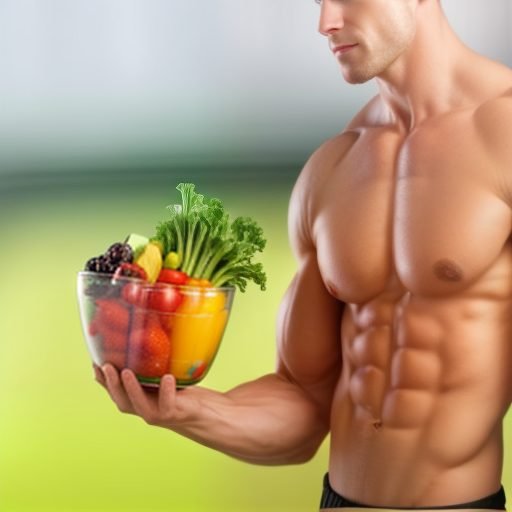Vegan Globetrotter is supported by our audience. When you purchase through one of our links, we may earn a small affiliate commission. As an Amazon Associate I earn from qualifying purchases. Your cost is not affected.
==================
The intersection of veganism for athletes and athletic performance has garnered increasing attention as more athletes adopt plant-based diets. Advocates suggest that vegan diets might offer several benefits for athletes, including better heart health, quicker recovery times, and reduced inflammation. A well-planned vegan diet adheres to the necessary caloric and nutrient demands of an athlete while replacing animal-based proteins and fats with plant-based alternatives. As with any diet, it’s critical to focus on getting a wide variety of nutrients to promote optimal physical function.
Veganism for Athletes: Nutritional Implications and Performance Support
Athletes considering a vegan diet often evaluate the implications on their nutritional intake, particularly in areas such as protein, iron, calcium, and vitamin B12, which are commonly associated with animal products. Modern dietetics, however, offers many plant-based sources for these nutrients and a growing body of research demonstrates how they support athletic performance. Hydration and supplementation are also key factors, ensuring athletes meet their nutritional needs while abstaining from animal products. Careful meal planning can aid in maintaining energy levels, optimizing performance, and ensuring proper recovery.
Key Takeaways
- Vegan diets can support the high-calorie and nutrient needs of athletes when carefully planned.
- Plant-based sources of protein and other key nutrients can be effective for athletic performance.
- Adequate hydration, strategic supplementation, and mindful meal preparation are crucial for vegan athletes.
Nutritional Foundations for Vegan Athletes

Photo by Jenny Hill on Unsplash
Video Credits: Dr. Fuhrman
For vegan athletes, obtaining proper nutrition is vital to ensure peak performance and recovery. Their diet should emphasize a diverse range of plant-based foods to meet energy and nutrient needs.
It’s important to focus on macronutrients as well as key micronutrients that are commonly found in lower quantities or are less bioavailable in plant-based sources.
Protein is crucial for muscle repair and growth. Vegan athletes should include a variety of protein sources to ensure a complete amino acid profile.
Legumes, grains, nuts, and seeds are excellent sources. Combining different plant proteins can help one achieve the balance necessary for optimal performance.
Key Macronutrients:
- Carbohydrates: The primary fuel source for athletes. Whole grains, fruits, and vegetables are essential.
- Fats: Necessary for long-term energy. Sources include avocados, nuts, and seeds.
Micronutrients of Importance:
- Iron: Critical for oxygen transport. Plant sources include lentils, chickpeas, and spinach.
- Calcium: For bone health and muscle function. Found in fortified plant milk and tofu.
- Vitamin B12: Essential for nerve function and blood cell formation. Supplementation is often required.
- Vitamin D: Important for bone health. Can be obtained from fortified foods or sunlight exposure.
- Omega-3 Fatty Acids: Important for heart health and cognitive function. Flaxseeds and walnuts are good sources.
Careful planning and the possible inclusion of fortified foods or supplements can help vegan athletes meet their nutritional requirements. Regular monitoring by a healthcare practitioner or a sports nutritionist is advisable to prevent deficiencies.
Micronutrient Considerations
Athletes following a vegan diet need to be particularly mindful of their micronutrient intake to ensure optimal health and performance. This section details the crucial vitamins and minerals for sustaining athletic activity.

Iron and Oxygen Capacity
Iron is indispensable for athletes as it plays a vital role in oxygen transportation and energy metabolism. Vegan athletes should focus on consuming iron-rich foods like lentils, chickpeas, and tofu. Iron absorption can be enhanced by pairing these foods with vitamin C-rich sources, such as oranges or bell peppers.
Calcium and Bone Health

Photo by Nino Liverani on Unsplash
Strong bones are foundational for athletic performance, and calcium is a key nutrient in maintaining bone health. Vegan sources of calcium include fortified plant milk, leafy greens, and almonds. They must ensure adequate consumption to mitigate the risk of fractures and osteoporosis.
Vitamin B12 and Metabolic Function
Vitamin B12 is crucial for nerve function and energy production. Since B12 is not found naturally in plant foods, vegans need to seek fortified foods like cereals or plant-based milks, or take supplements to avert deficiencies that could impair their athletic performance.
Vitamin D and Athletic Performance
Vitamin D is essential for bone health and immune function, and it can impact muscle strength. Vegan athletes often require supplementation or fortified foods, as few plant-based sources provide adequate amounts, and sunlight exposure may be insufficient, especially in winter months.
Hydration Strategies for Vegan Athletes

Photo by engin akyurt on Unsplash
Proper hydration is crucial for all athletes, including those on a vegan diet. Vegan athletes should be mindful of not only the quantity but also the quality of fluids they consume. They must ensure that hydration supports their nutritional needs and the demands of their training and competition schedules.

Daily Water Intake: A general guideline for athletes is to consume at least 2-3 liters of water per day. Vegan athletes might need to increase this amount depending on the intensity and duration of their training.
Electrolyte Balance: It’s essential to maintain the right balance of electrolytes, particularly sodium, potassium, magnesium, and calcium. Vegan athletes can find these minerals in many plant-based foods and also in some formulated electrolyte drinks.
Electrolyte Plant-Based Sources Sodium Celery, beet greens Potassium Bananas, spinach, avocados Magnesium Nuts, seeds, leafy greens Calcium Fortified plant milks, tofu
During Exercise: For workouts longer than one hour, athletes should consider a sports drink that contains carbohydrates and electrolytes to replace lost fluids and minerals. This is particularly important for vegan athletes to prevent hyponatremia, a condition caused by low sodium levels.
Hydration Monitoring: Athletes can monitor their hydration status by paying attention to the color of their urine. Light yellow to clear urine typically indicates adequate hydration, while dark urine can be a sign of dehydration.
Pre- and Post-Workout Hydration: Drinking water before and after exercise is essential. Vegan athletes should aim for 500-600 ml of water at least 2 hours before exercise and rehydrate with 1.5 times the amount of lost fluid post-exercise. They may choose drinks that contain electrolytes and simple carbohydrates to replenish what’s lost through sweat.
Supplementation for Optimal Vegan Athleticism
Athletes following a vegan diet may require specific nutrient supplementation to maintain their performance levels. Key supplements include:
- Creatine: Vegan athletes might have lower muscle creatine levels. Supplementation can aid in high-intensity training efforts by replenishing phosphocreatine stores in muscles.
- β-alanine: Often lower in vegetarian diets, β-alanine aids in synthesizing carnosine, which helps buffer acid in muscles, delaying fatigue during high-intensity activity.
- Vitamin B12: Generally found in animal products, B12 is crucial for red blood cell production and neurological function. Vegan athletes should seek fortified foods or supplements.
- Iron: Non-heme iron found in plant foods is less bioavailable. Athletes should combine iron-rich foods with vitamin C sources to enhance absorption or consider supplementation if levels are low.
- Omega-3 fatty acids: Important for cardiovascular health and inflammation control, vegan sources like flax and chia seeds may not provide adequate EPA and DHA. Algal oil supplements are a vegan alternative to fish oil.
- Calcium: Essential for bone health, athletes should consume fortified plant-based milks or juices and consider supplementation if intake is insufficient.
- Vitamin D: It supports bone health and immune function, and can be synthesized from sunlight exposure. In areas with limited sunlight, supplementation might be necessary.
Athletes must tailor their supplementation to their individual dietary intake, training load, and performance goals. Regular blood tests can guide the need for further supplementation. The importance of consuming a well-rounded vegan diet, alongside strategic supplementation, cannot be overstressed for athletes who wish to ensure they meet their nutritional needs.
Meal Planning and Prep for Performance
Video Credits: The Vegan Gym
Strategically planned meals and snacks optimize an athlete’s performance and recovery. Each subsection below offers specific guidelines and examples to aid in crafting an effective vegan diet geared toward athletic success.

Pre-Workout Nutrition
A vegan athlete’s pre-workout nutrition should focus on complex carbohydrates for sustained energy and a moderate amount of protein. For example, a meal including whole grains like oats or quinoa coupled with a serving of fruits will provide the necessary fuel. Meals should be consumed 2-4 hours before exercise to allow for digestion.
- Breakfast Option: A bowl of oatmeal with sliced bananas and almond butter.
- Snack Option: An apple with a handful of walnuts.
Post-Workout Recovery

Photo by Diana Polekhina on Unsplash
Post-workout, the objective is to replenish energy stores and provide protein for muscle repair. Meals should include a balance of carbohydrates and protein and should be consumed within 45 minutes after exercising. Tofu, lentils, and hemp seeds are excellent protein sources for recovery.
- Meal Example: A quinoa salad with black beans, avocado, and leafy greens.
- Snack Option: A smoothie with vegan protein powder, mixed berries, and spinach.
Daily Meal Templates

Photo by Brooke Lark on Unsplash
Daily meal planning for a vegan athlete should ensure a variety of nutrients are consumed. Below is a simplified template for structuring daily intake:
- Breakfast: Chia seed pudding topped with mixed nuts and fruits.
- Lunch: Grilled tempeh over a bed of mixed greens with a variety of colorful vegetables.
- Dinner: Lentil curry with brown rice and steamed broccoli.
By following these meal templates and guidelines, vegan athletes can support their energy needs and recovery for optimal performance.
Performance and Recovery Foods
Video Credits: NutritionFacts.org
For athletes following a vegan diet, selecting high-quality sources of plant-based proteins and recovery foods is crucial. These foods not only provide the necessary nutrients to muscle synthesis but also aid in reducing recovery time after training.
Plant-Based Protein Powders
Soy Protein Isolate: A complete protein that contains all essential amino acids. It can be particularly beneficial for muscle repair and growth.
Pea Protein: Often enriched with branched-chain amino acids (BCAAs), it supports endurance and muscle preservation during and after prolonged exercise.
Recovery Snacks and Beverages
Cherry Juice: Rich in antioxidants and anti-inflammatory compounds, cherry juice can accelerate recovery by reducing muscle soreness post-exercise.
Turmeric Infusions: Containing curcumin, it can help reduce inflammation and muscle damage.
Energy Balls: Ideal for on-the-go snacking, energy balls made from ingredients like oats, nut butters, and quinoa offer a balance of proteins, fats, and carbohydrates for sustained energy and recovery.
Adapting to a Vegan Diet as an Athlete
Video Credits: Physicians Committee
Adopting a vegan diet requires careful planning to meet an athlete’s nutritional needs. This section explores the stages of transition and the importance of tracking performance metrics.
Transition Phases
1. Initial Assessment: Athletes should consult a dietitian to ensure their vegan diet includes adequate calories and essential nutrients. They need to gradually replace animal products with plant-based alternatives.
2. Implementing Changes: Start by implementing a few vegan meals per week, slowly increasing the frequency. It’s crucial to focus on a variety of foods to cover all micronutrient needs.
3. Full Transition: Once comfortable, athletes can move to a complete vegan diet, continuing to ensure they’re consuming enough protein, iron, calcium, vitamin B12, and omega-3 fatty acids.
Monitoring Athletic Progress
- Training Performance: Athletes should regularly evaluate their training performance for any changes. Maintaining or improving performance indicates a successful nutrition strategy.
- Recovery Times: Monitoring recovery time helps athletes assess how well their diet supports muscle repair and growth. A well-planned vegan diet should not hinder recovery.
- Health Indicators: Routine blood tests can monitor levels of critical nutrients like iron and vitamin B12. Nutrient deficiencies can have a significant impact on an athlete’s well-being and performance.
By focusing on these transition phases and closely watching athletic progress, athletes can ensure their move to a vegan diet supports their performance goals.
Ethical and Environmental Considerations of Veganism
Video Credits: VEGAN UNINHIBITED
Athletes who adopt a vegan lifestyle often cite ethical and environmental reasons as powerful motivators. Ethically, veganism supports animal welfare by rejecting the exploitation and harm of animals for food. This approach aligns with the values of those who champion the rights of sentient beings.
From an environmental perspective, a plant-based diet can significantly reduce one’s carbon footprint. Production of plant-based foods typically requires less water and land compared to animal agriculture. Research suggests that if people switch to a vegan diet, they can possibly cut their food-related carbon emissions by up to 73%.
Land Use and Wildlife
- Reclaiming farmland: Transitioning to plant-based agriculture could allow for natural habitats to be restored, benefiting wildlife conservation efforts.
- Reduced extinction rates: Lesser demand for animal farming could help in curbing the rates of wildlife extinction.
Nutritional Impact
- Plant-based diets provide all necessary nutrients when well-planned, as indicated by numerous health and sports organizations.
- It’s critical for vegan athletes to ensure they receive adequate protein, vitamins, and minerals for optimal performance—something that is quite achievable with careful planning and knowledge.
Various studies, including those assessing vegan diets in athletes, have shown that with correct dietary planning, athletes can maintain their health and performance without animal products. This adaptation not only aligns with ethical and environmental principles but also provides a viable alternative to traditional diets in the sporting world.
The Impact of Veganism for Athletes on Athletic Performance
Video Credits: Mic the Vegan
Research indicates that a well-planned vegan diet has several potential benefits for athletes. Key factors such as muscle capillary density, hemoglobin concentration, and endothelial function are essential for endurance, and they can be positively affected by plant-based nutrition. Athletes concerned with endurance performance may find that a vegan diet offers potentially advantageous properties.
Weight Management and Body Composition: Athletes following plant-based diets report easier weight management, attributing this to a higher intake of dietary fiber leading to better satiety. Moreover, such diets are associated with creating leaner bodies, which could positively impact performance in some sports by improving power-to-weight ratio.
Energy and Nutrient Needs: It is a common myth that vegan diets might not provide sufficient energy or nutrients for athletes. However, a diverse vegan diet that includes grain products, fruits, vegetables, and protein-rich plant foods can satisfy an athlete’s energy and nutrient needs. Including sources of iron, calcium, and vitamin B12 is essential for maintaining health and performance.
Recovery: Rapid recovery is vital for intensive training regimes. Vegan diets are high in antioxidants and anti-inflammatory compounds, which can facilitate muscle recovery. Contrary to popular belief, a plant-based diet does not slow down recovery, and can be well-suited to support the reconstruction of muscle tissue post-exercise.
Environmental Impact: Aside from personal health and performance, vegan diets are acknowledged for their lower environmental impact. Athletes considering the sustainability of their dietary choices may note that choosing plant-based options can significantly reduce their carbon footprint, thus making a positive contribution to environmental conservation efforts.
Challenges and Solutions for Veganism for Athletes
Video Credits: GetSport
Vegan athletes may face several nutritional challenges, but with careful planning, these can be effectively managed.
Protein Intake and Quality: A primary concern is obtaining adequate protein for muscle repair and growth. Plant-based protein can have a lower digestibility and a less complete amino acid profile compared to animal proteins.
Solutions: Athletes can incorporate a variety of protein-rich foods like lentils, chickpeas, quinoa, and tofu. The combination of different plant proteins throughout the day can ensure a complete amino acid profile. Supplements such as pea or rice protein powders can also be beneficial.
Iron Absorption: Plant-based iron (non-heme) is less easily absorbed by the body than heme iron from animal products.
Solutions: Combining iron-rich foods, such as spinach and legumes, with vitamin C-rich foods, like oranges and bell peppers, enhances iron absorption. Monitoring iron status and potentially supplementing with a plant-based iron supplement may be necessary.
Micronutrient Deficiencies: Vegans might be at a higher risk for deficiencies in nutrients such as vitamin B12, calcium, and omega-3 fatty acids.
Solutions: Fortified foods and supplements can help. Nutritional yeast and fortified plant milks are good sources of B12, while chia seeds and flaxseeds are rich in omega-3s. Calcium can be found in fortified foods, almonds, and leafy greens.
Energy Intake: High-fiber plant-based diets are filling, which might make consuming enough calories challenging for athletes needing high energy intake.
Solutions: Focus on energy-dense foods like nuts, seeds, avocados, and using plant oils in cooking. Smoothies with nut butters and plant milk can provide a calorie boost.
By acknowledging these challenges and implementing strategic dietary practices, vegan athletes can thrive and perform optimally.
Veganism for Athletes: Fueling Excellence and Crafting Peak Performance

The journey towards embracing veganism for athletes unveils a pathway to enhanced performance and conscientious living. Navigating the realms of plant-based nutrition, athletes can find robust support for their nutritional needs, debunking myths surrounding the adequacy of vegan diets. By prioritizing a diverse range of nutrient-rich foods, strategic supplementation, and thoughtful hydration, athletes can not only meet but excel in their physical demands. Veganism for athletes is not just a dietary choice; it’s a holistic approach that aligns ethical, environmental, and health considerations to carve a sustainable and high-performing athletic lifestyle.
Frequently Asked Questions on Veganism for Athletes
In this section, readers will find answers to common queries regarding the integration of veganism for an athlete’s lifestyle, focusing on protein sources, diet impact on performance, recovery advantages, meeting nutritional needs, and meal planning for optimal athletic output.
Veganism for Athletes: What Protein Sources Are Recommended for Vegan Athletes?
Vegan athletes have a variety of protein-rich options to include in their diets, such as legumes, lentils, tofu, tempeh, and quinoa. Incorporating a diverse array of plant-based proteins is crucial for meeting their dietary needs.
Veganism for Athletes: How Does a Plant-Based Diet Impact an Athlete's Endurance and Muscle Strength?
A plant-based diet can provide all the necessary nutrients to maintain and improve an athlete’s endurance and muscle strength. Key dietary components like complex carbohydrates and phytonutrients play a significant role in optimizing athletic performance.
Veganism for Athletes: What Are the Recovery Benefits for Athletes on a Vegan Diet?
Athletes on a vegan diet often experience reduced inflammation and quicker recovery times after intense physical activity. The high antioxidant content found in plants aids in reducing oxidative stress, contributing to faster recovery.
Veganism for Athletes: Can a Vegan Diet Meet the Nutritional Needs of Olympic and Elite Athletes?
Yes, a well-planned vegan diet can meet the nutritional needs of Olympic and elite athletes. It requires careful planning and possibly supplementation to ensure adequate intake of certain nutrients such as Vitamin B12 and iron.
Veganism for Athletes: How Can Athletes Ensure They Are Getting All Essential Nutrients on a Plant-Based Diet?
Athletes should focus on consuming a diverse diet that includes a variety of fruits, vegetables, whole grains, and fortified foods. They may consider consulting a nutritionist to address potential gaps and to opt for supplements, such as Vitamin B12, which is crucial for energy production and blood formation.
Veganism for Athletes: What Does a Typical Week's Meal Plan Look Like for Vegan Athletes?
A typical week’s meal plan for vegan athletes should integrate a balance of carbohydrates, proteins, and fats, alongside vitamins and minerals. It involves planning meals around whole foods like starches, a colorful assortment of vegetables, and including reliable protein sources in each meal.
Follow Our Socials
Discover the awesome world of VeganGlobetrotter!
We’ve got cool stuff on different social media apps. Check out tasty recipes and travel tips on Instagram. Talk about interesting things and make friends on Twitter. Watch fun videos and learn cool stuff on YouTube. Hang out with us on Facebook for a friendly community and cool ideas. It doesn’t matter if you’re new to being vegan or you’ve been doing it for a while.
VeganGlobetrotter’s social media has something for everyone who likes yummy food and cares about the planet. Follow us on all the apps for a super fun and easy way to be vegan! 🌱✈️ #VeganGlobetrotter #YummyVeganLife
Related Articles on Veganism for Athletes
In this section, readers will find other related articles on veganism for athletes that will help you learn more and have an easier time in the integration of veganism in their lives.



Don't miss out
when new recipes and information are added!
Join our newsletter for free recipes,
healthy living inspiration, and special offers
You have Successfully Subscribed!